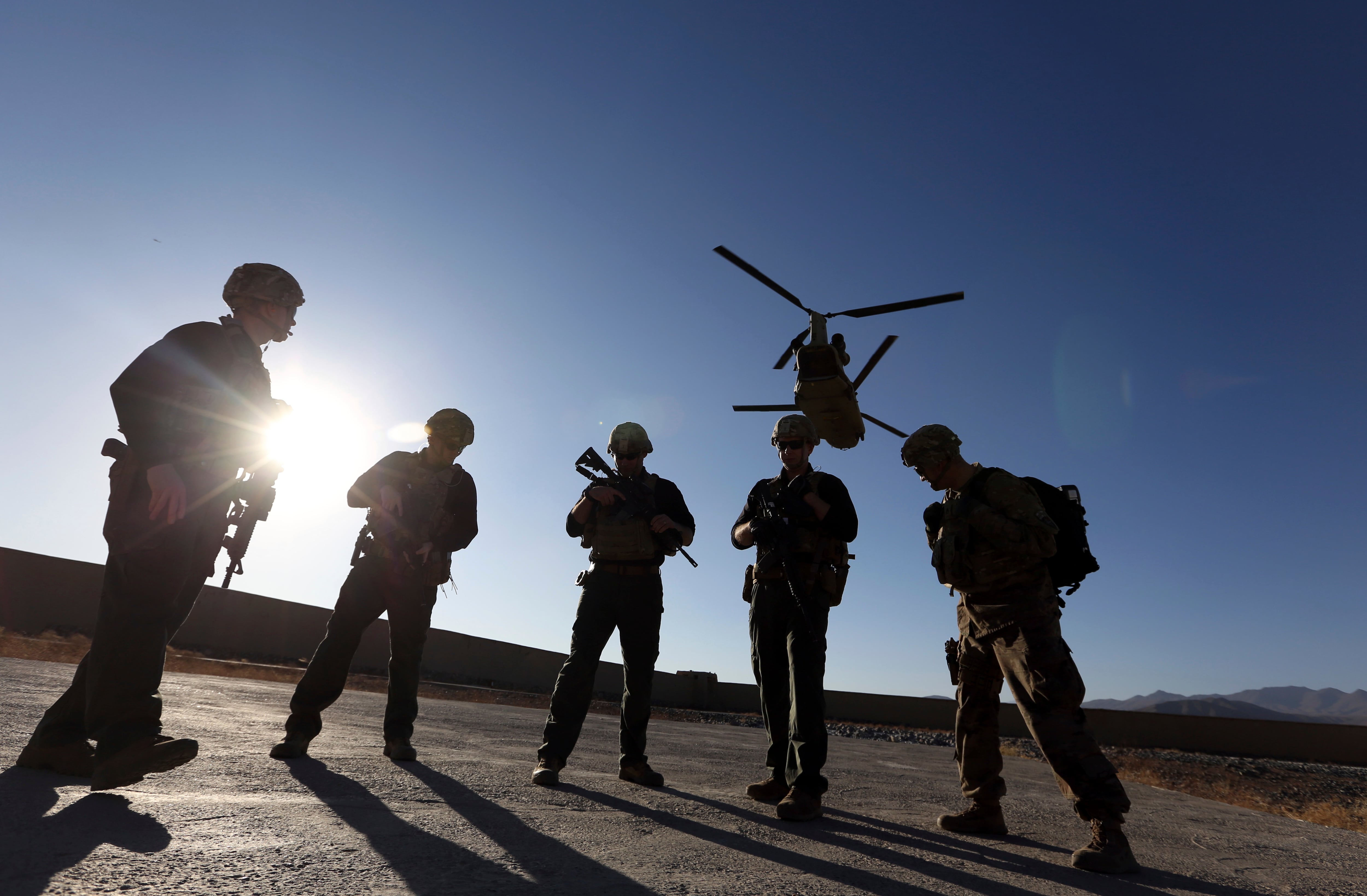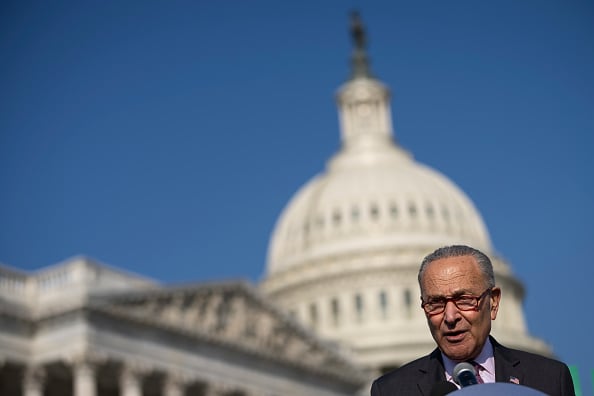If Congress is going to pass the annual defense authorization bill for a 61st consecutive year — and that’s a big if — it’s going to take a tremendous amount of work in public and behind closed doors over the next few weeks.
On Friday, the Senate left town for Thanksgiving break without finalizing its draft of the sweeping $740 billion military policy measure, but with plans to do so in the last few days of November.
Senate Armed Services Committee Chairman Jack Reed, D-R.I., wouldn’t speculate on the next steps after that.
“We have to get the bill passed here before we start thinking about that,” Reed said, adding: “I think the one thing that we all feel is that we have to pass the national defense bill.”
RELATED

The annual defense authorization bill is important not just for what’s in it but also for what it symbolizes. Senate Armed Services Committee ranking member Jim Inhofe, R-Okla., called it “the biggest and the most important bill of the year” and “must-pass” legislation during a chamber floor speech last week.
Each year the bill includes hundreds of policy provisions related to military pay, Pentagon reforms and equipment purchases. This year’s most controversial proposals incorporate language to dramatically overhaul how military sexual assault cases are handled and a mandate to add women to the list of potential candidates for a future draft.
But even with those hot-button issues, and even with increasing partisan fractures among lawmakers in recent years, the legislation has been approved by lawmakers for 60 straight years, and often by strong bipartisan margins.
In a typical year, the House and Senate pass their respective drafts in the early fall, giving negotiators months to debate the differences in their versions and finish a compromise in early December.
This year, even if the Senate finishes its work by Nov. 30 (which still is in question) lawmakers will have only a few days before the end of the legislative year to complete those negotiations and schedule final chamber votes on the results.
That means giving up on assigning conferees to debate differences in the two drafts. Gone are the traditional ceremonial photo-ops between House and Senate Armed Services Committee members as they start days of closed discussions on hot-button issues.
“Conference is problematic because there’s a lot of steps that you have to go through [to start that],” said House Armed Services Committee Chairman Adam Smith, D-Wash. “That takes time … and it’s going to be hard if not impossible at this point to get into conference.”
Smith said his staff are already looking at alternative scenarios to include a “ping-pong” process where the two chambers trade amended or substitution drafts of the bill, rather than formally write a third version in the conference committee.
Doing that would require several votes in both chambers, however. Both the House and Senate have to take up a budget extension, legislation to raise the debt ceiling and several other end-of-year packages in coming weeks, making the window for fitting in extra defense bill votes very narrow.
In addition, informal talks between the House and Senate have already begun in behind-the-scenes staff talks in an effort to reconcile differences in the two chambers’ bills, Smith said.
“I’m just trying to get as much resolved as possible, as quickly as possible, so that we’re in a position to vote [on a compromise bill],” he said.
RELATED

Breaking the authorization bill passage streak would be seen as a major blow to the reputations of Democratic leaders in the House and Senate, even if the reasons for that fall to both parties.
Republicans have already attacked Senate Majority Leader Chuck Schumer, D-N.Y., in recent weeks for his slow pace on the legislation, calling it an insult to the military and a sign of Democratic leaders’ apathy towards defense issues.
But Republican lawmakers also blocked a bid for quick passage of the bill in the Senate last week, demanding more time to consider amendments.
Inhofe said he still has confidence that the work will get done, but voiced frustration that even small delays now could seriously jeopardize final passage of the measure. Other lawmakers have echoed that concern.
“Don’t mess up the one thing that you can count on the Senate to do in a bipartisan way every year,” Sen. Tim Kaine, D-Va, told reporters during the Halifax International Security Forum, according to Politico. “A Senate that cannot [pass the authorization bill] hardly deserves the title.”
Leo covers Congress, Veterans Affairs and the White House for Military Times. He has covered Washington, D.C. since 2004, focusing on military personnel and veterans policies. His work has earned numerous honors, including a 2009 Polk award, a 2010 National Headliner Award, the IAVA Leadership in Journalism award and the VFW News Media award.
Joe Gould was the senior Pentagon reporter for Defense News, covering the intersection of national security policy, politics and the defense industry. He had previously served as Congress reporter.





